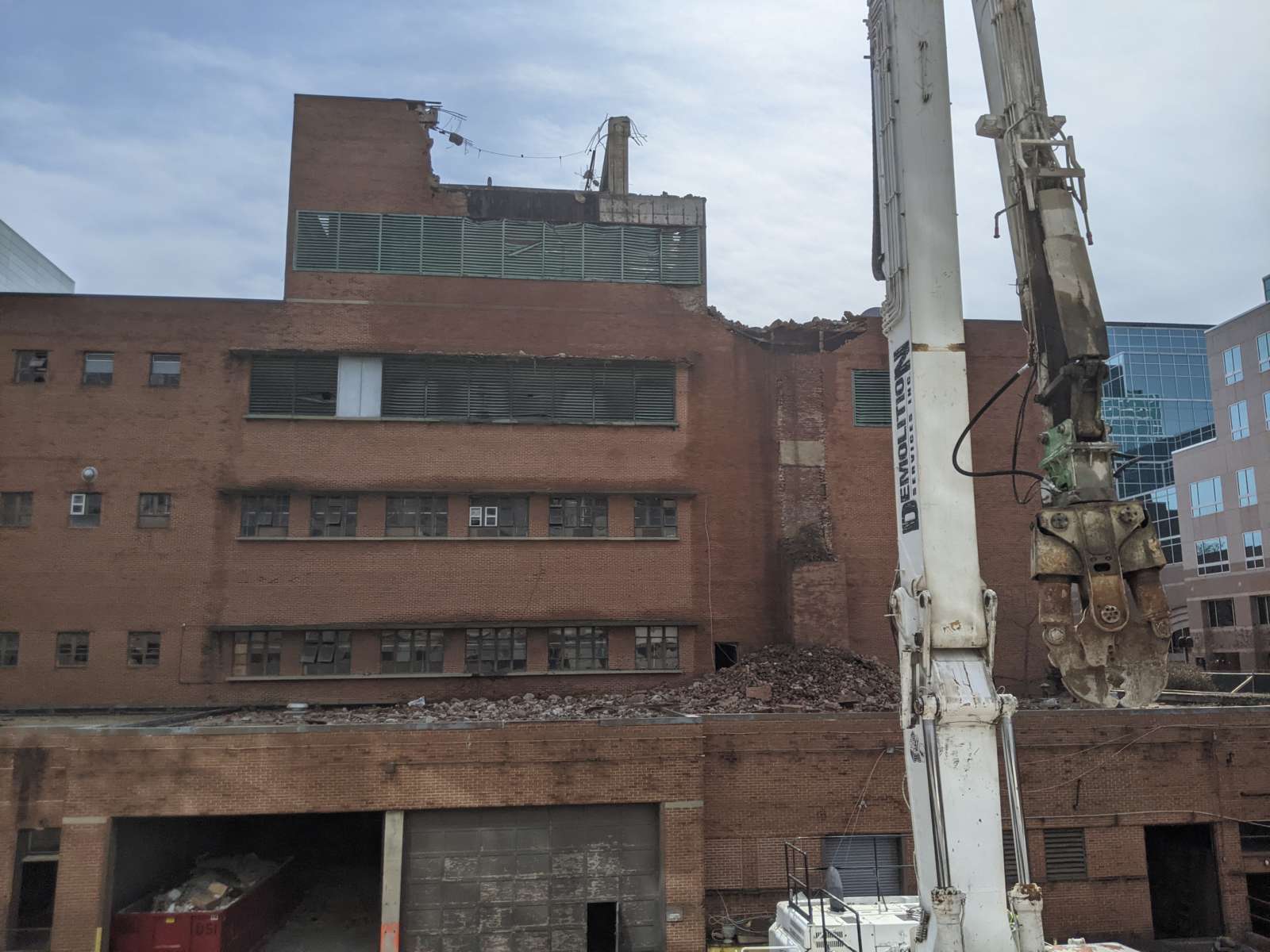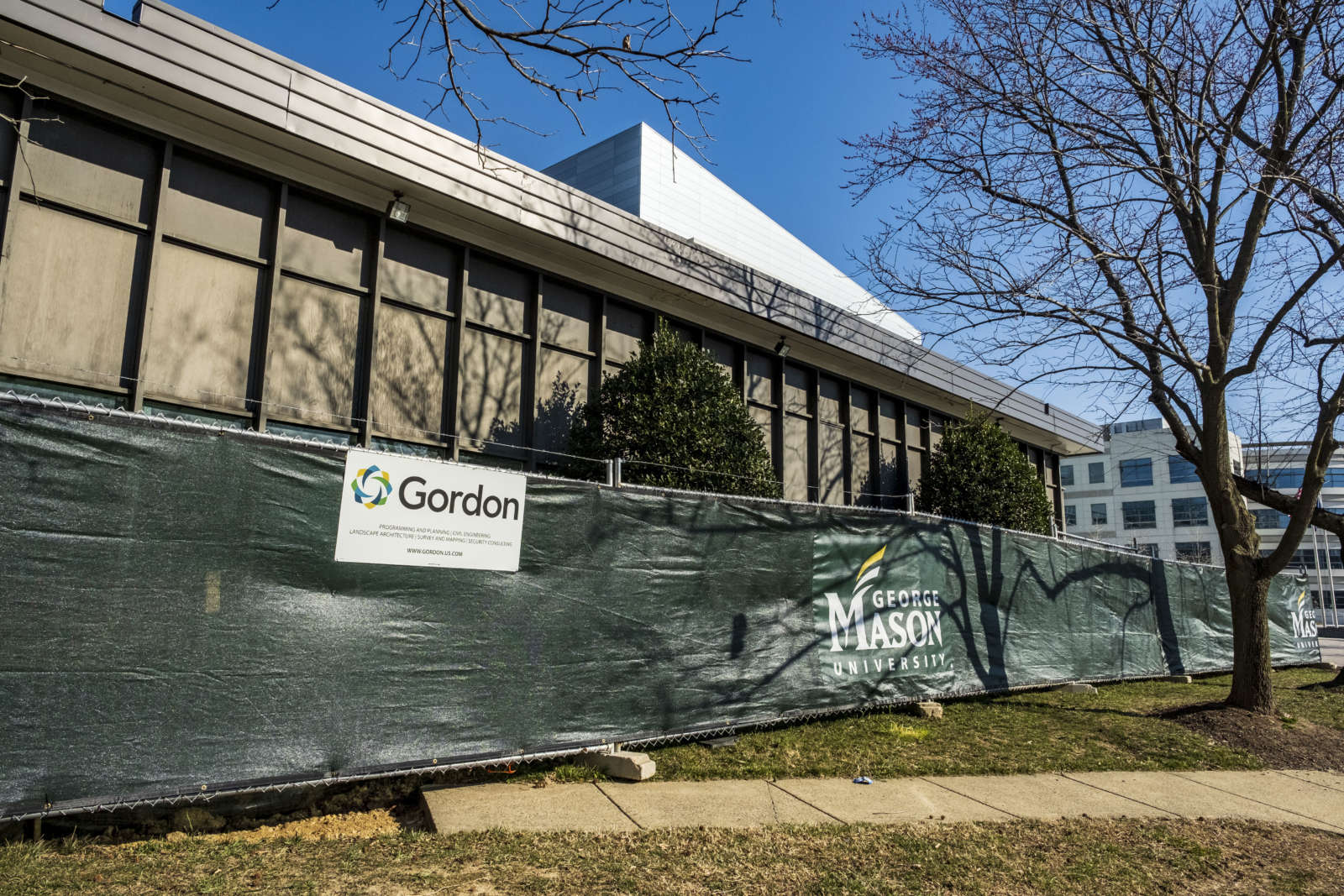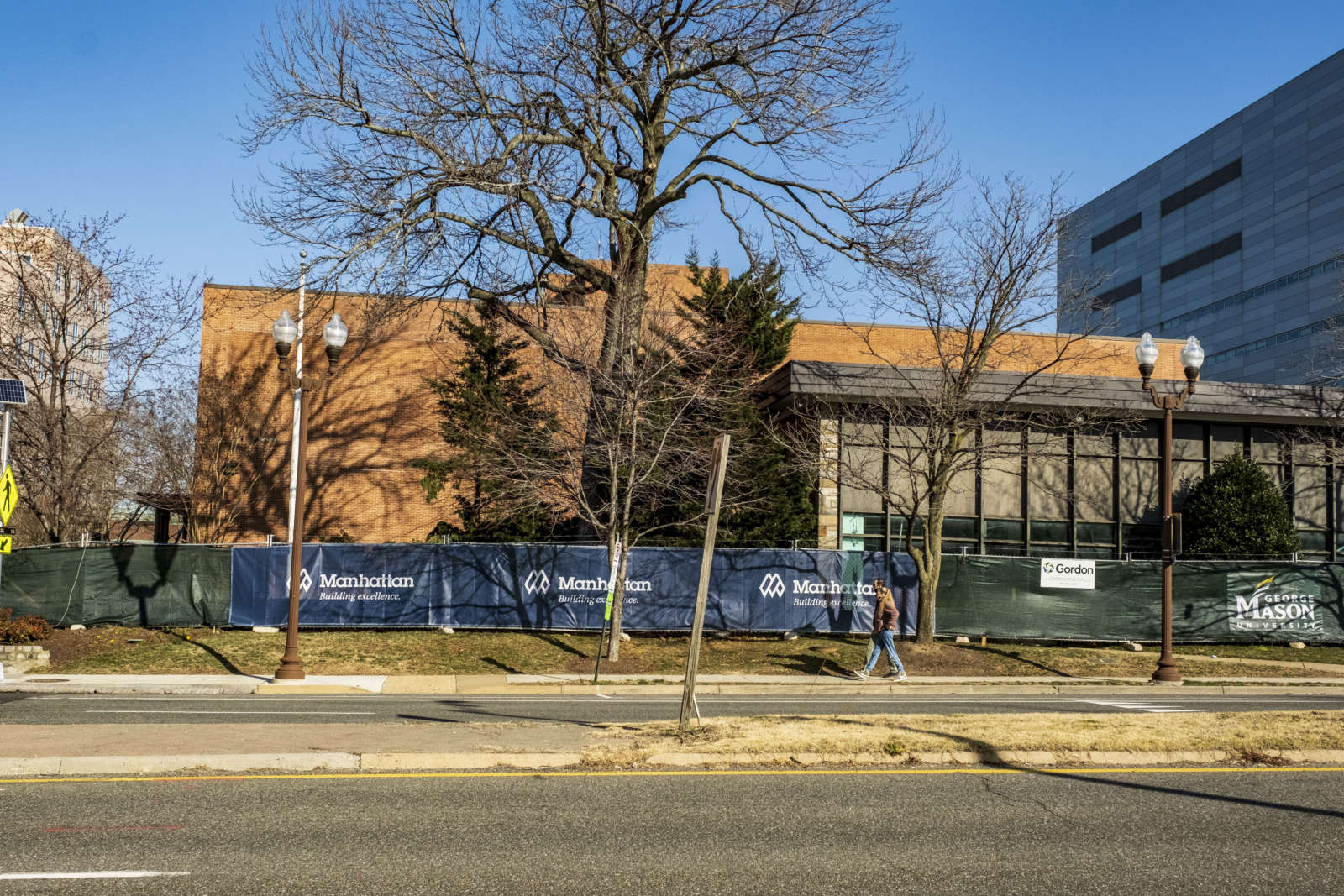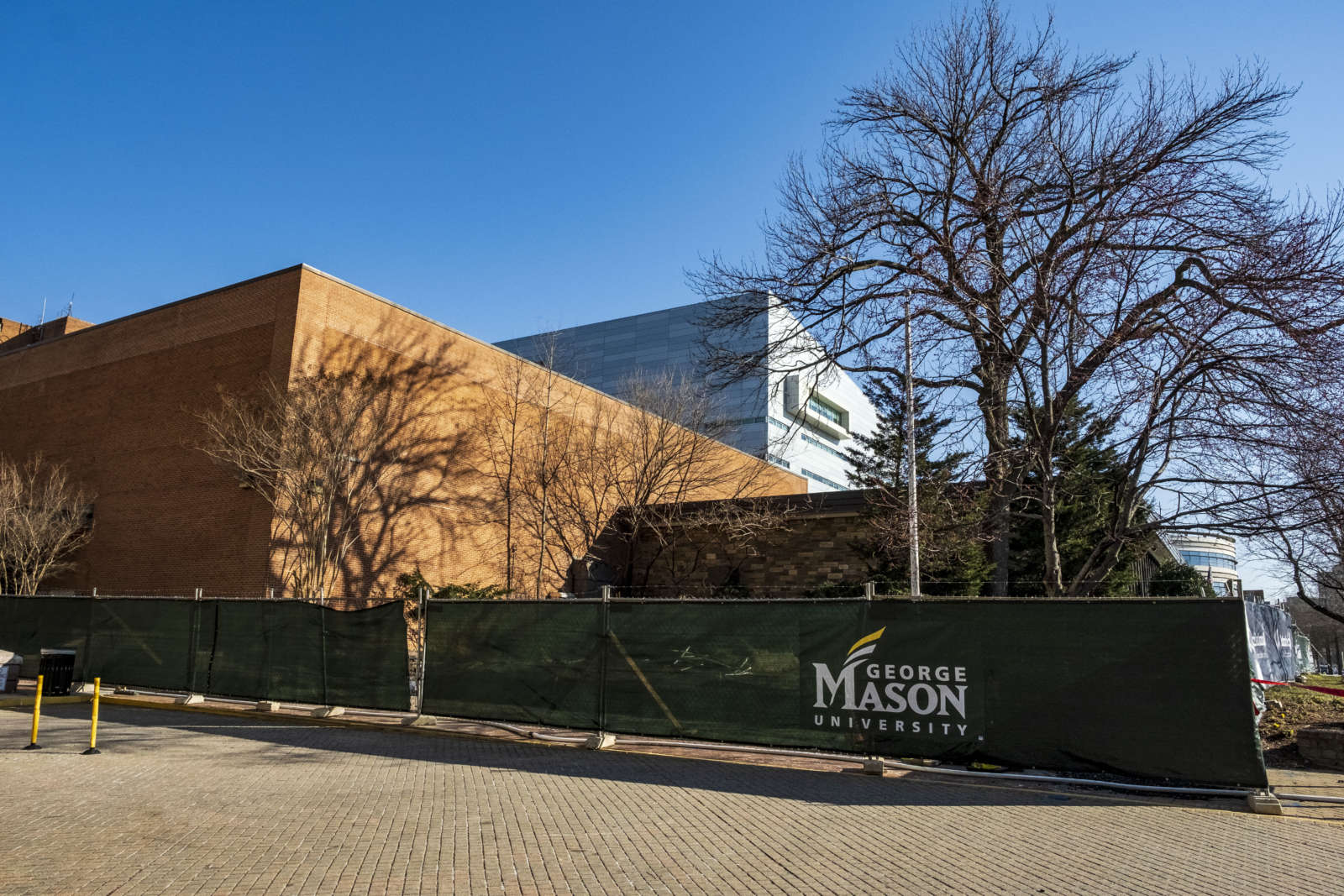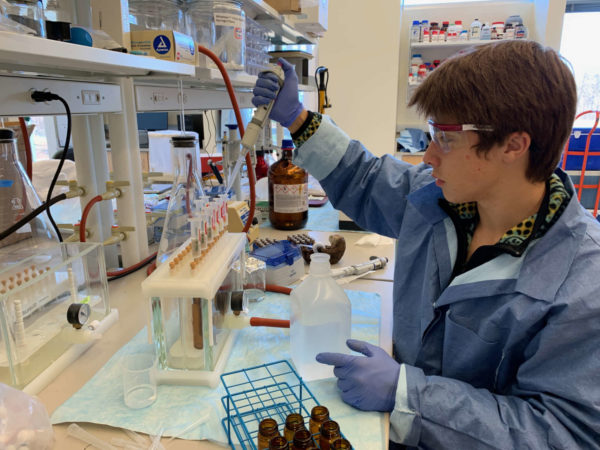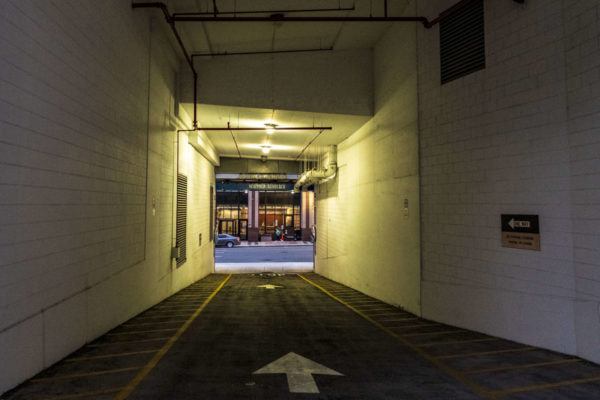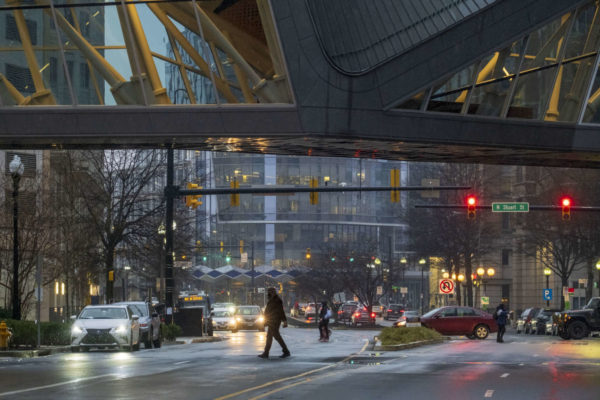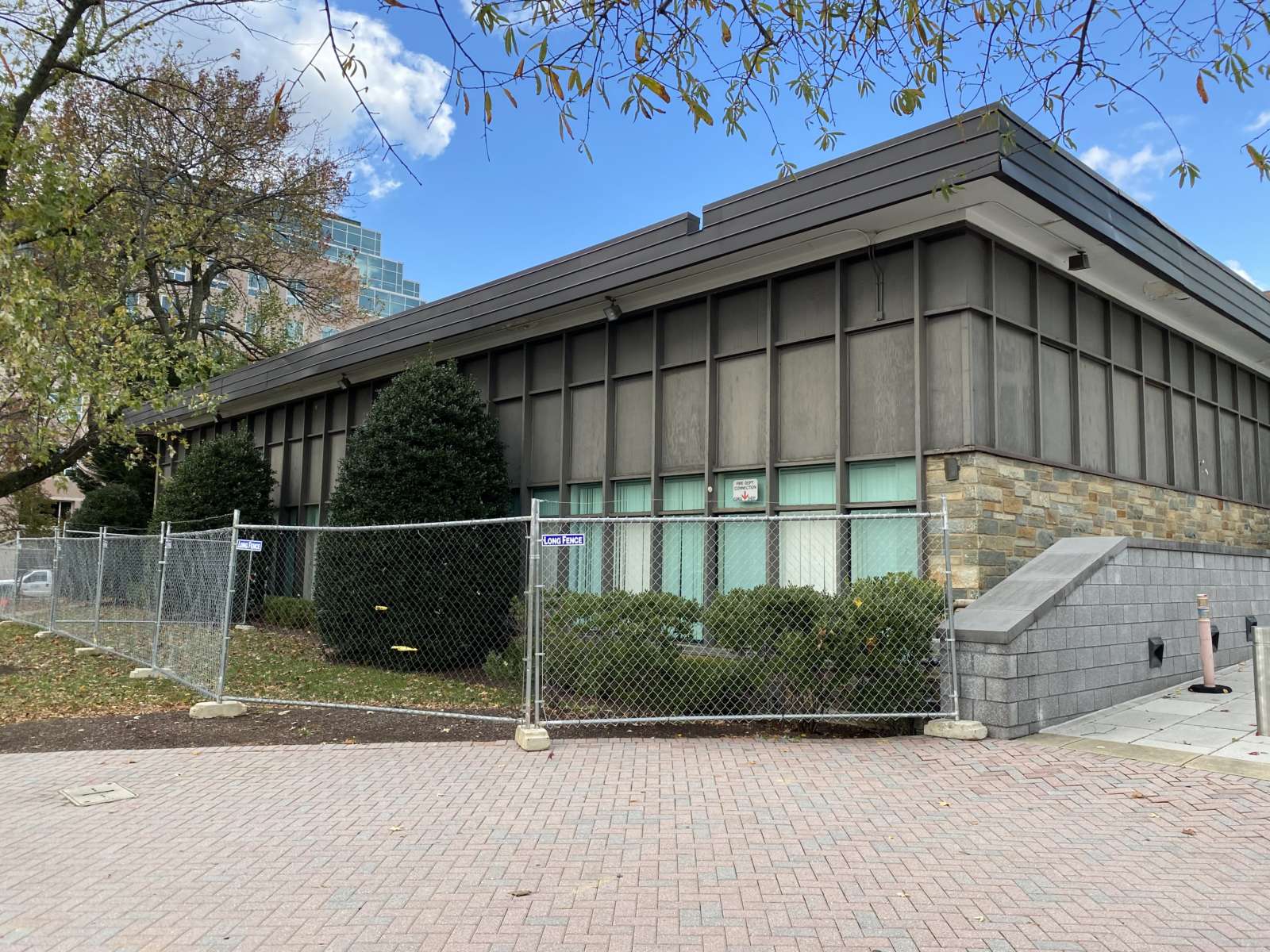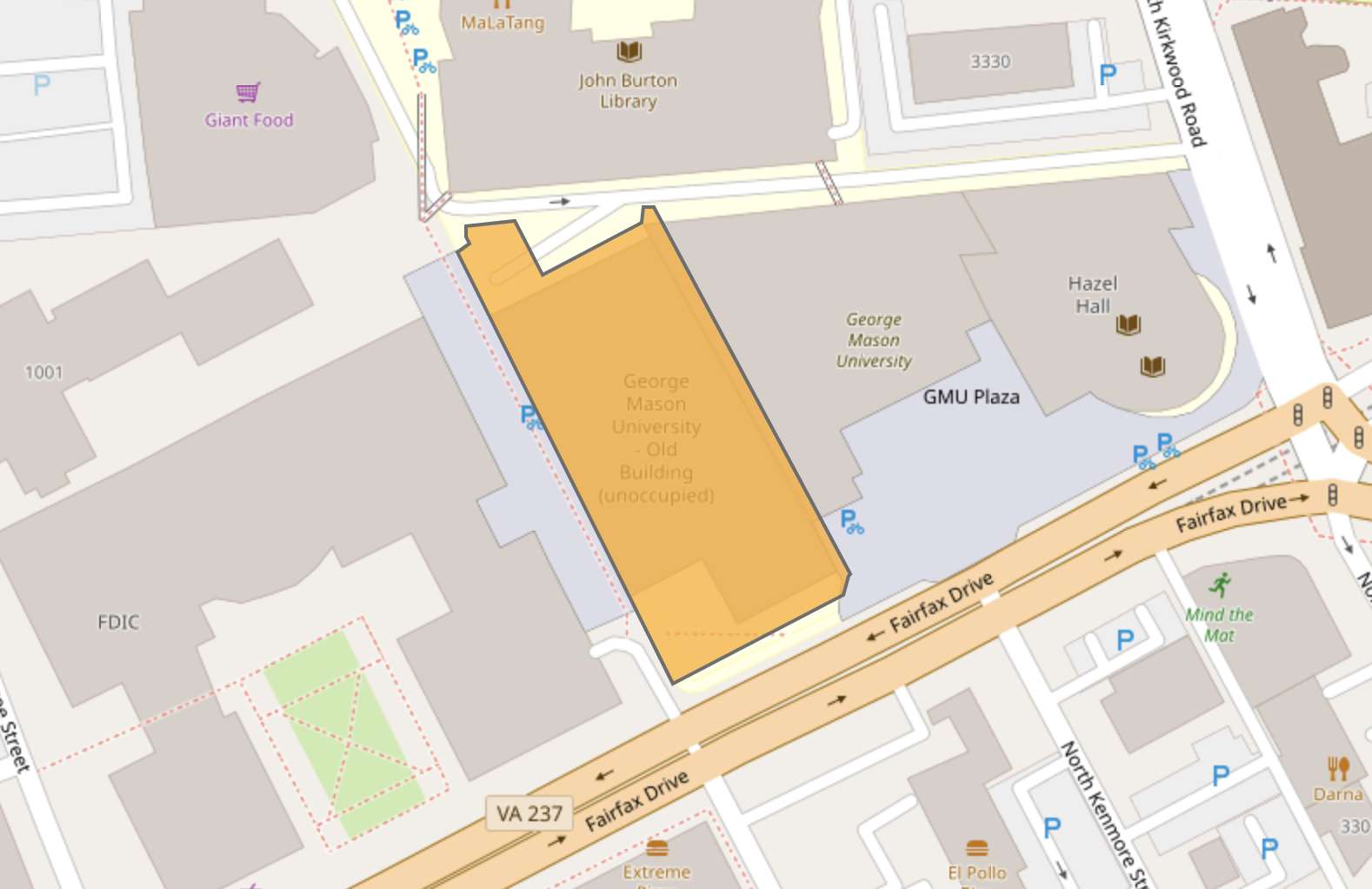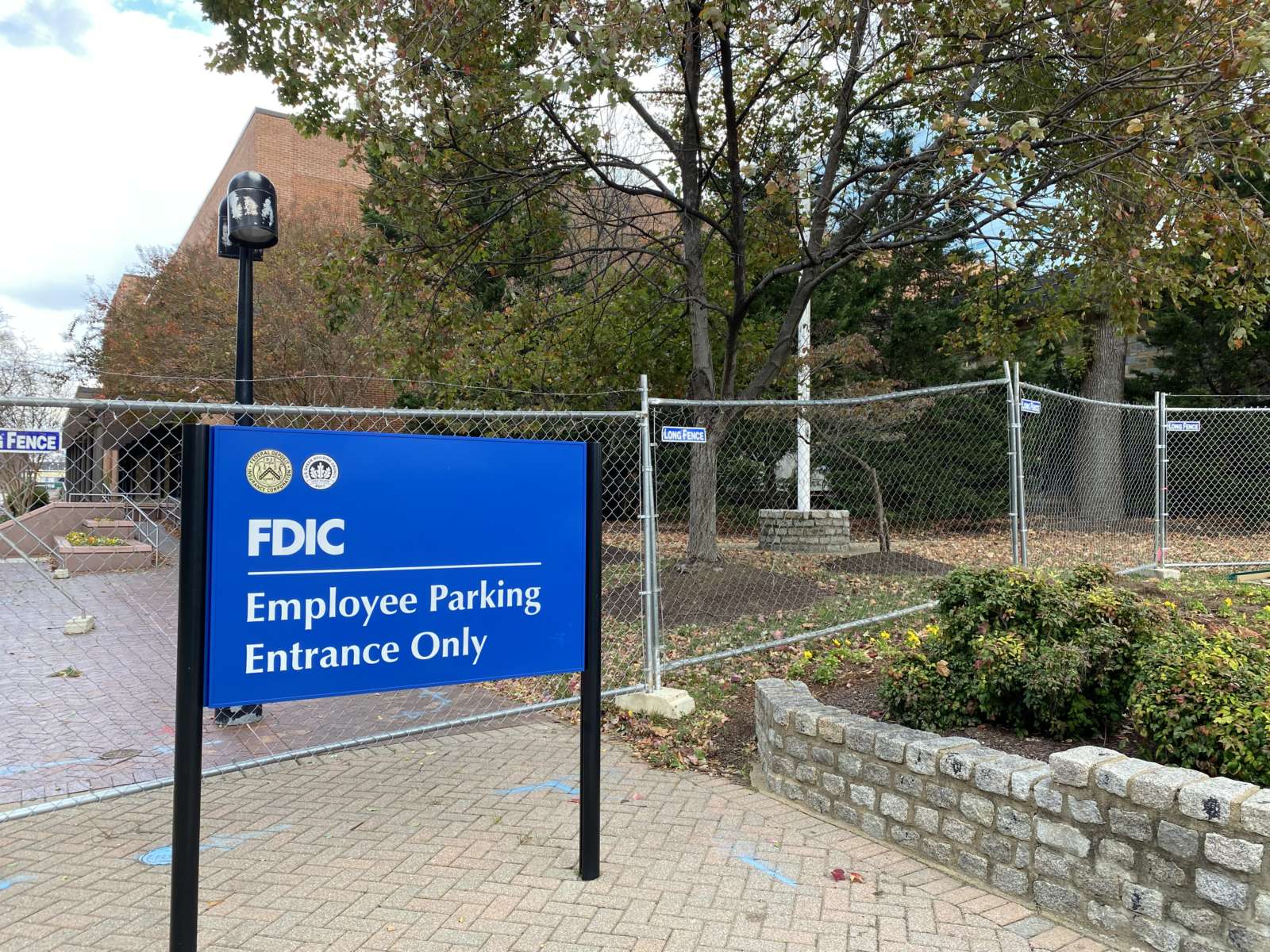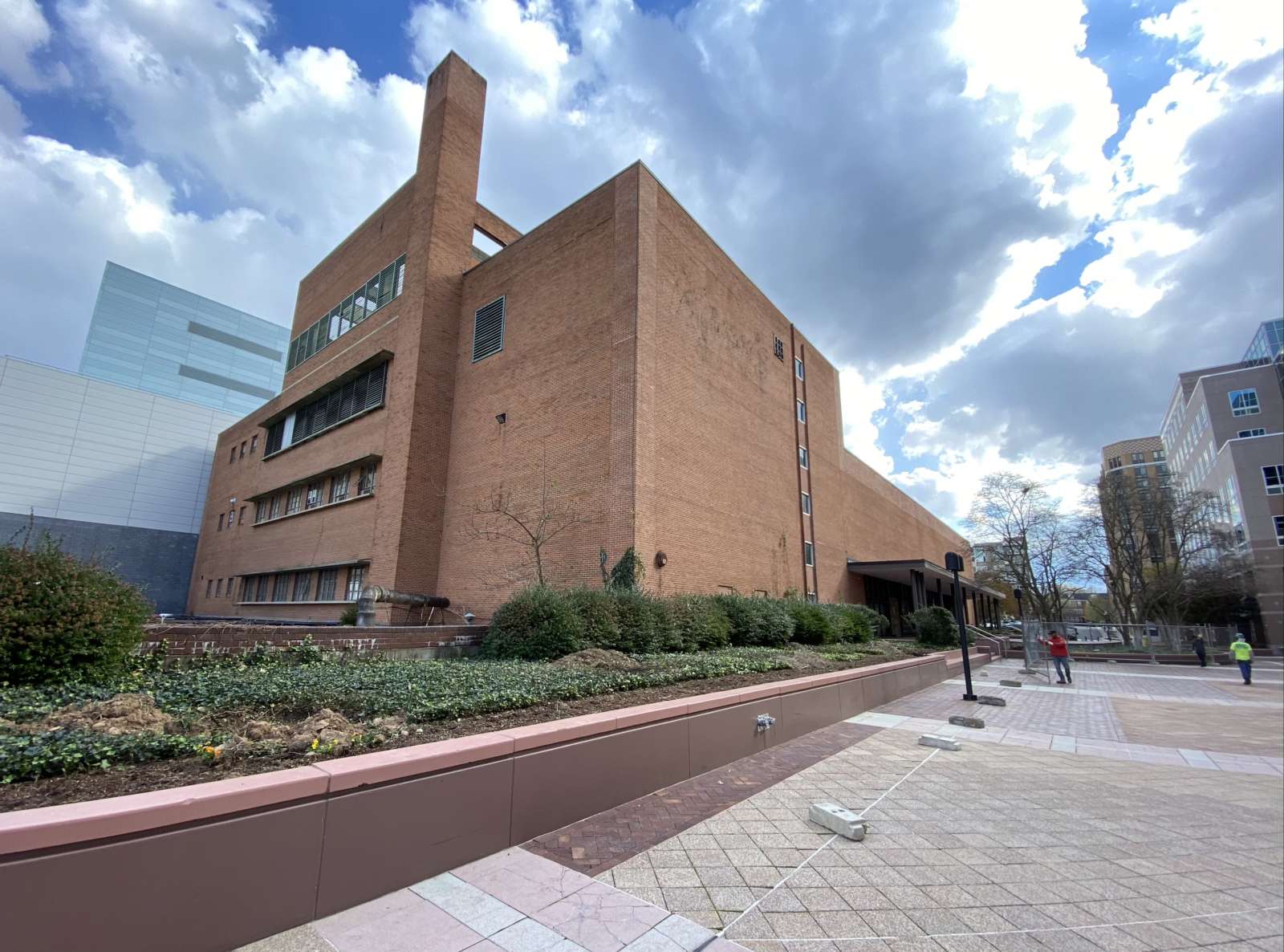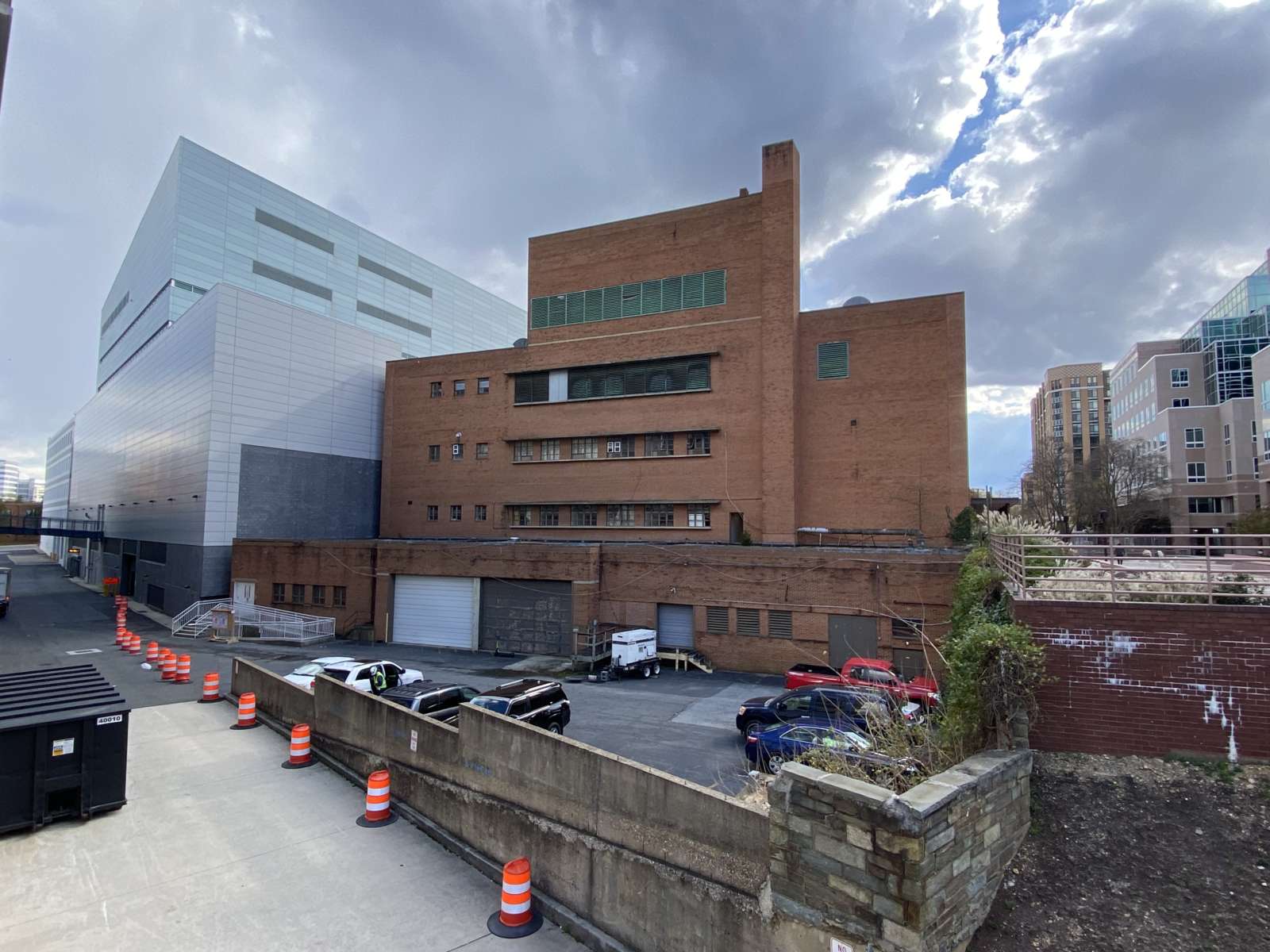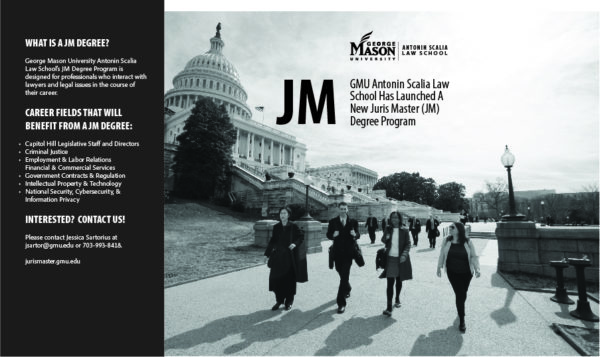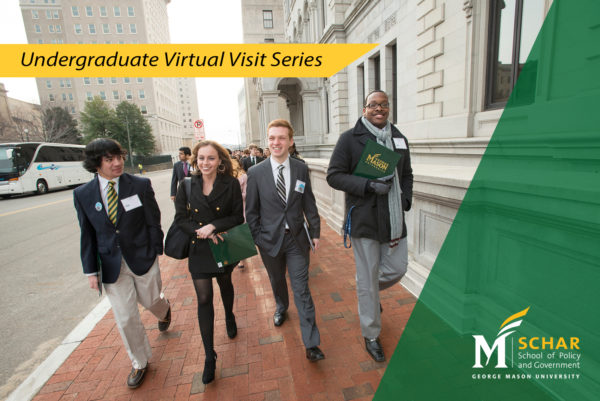(Update 5:15 p.m.) Demolition has begun on the exterior of the old Kann’s Department Store to make way for George Mason University’s Arlington campus expansion.
A University spokesperson confirmed to ARLnow that demolition of the interior began in November and the exterior demolition began this week. It’s expected to be completed in the fall.
Fencing went up in November around the mid-century building that has a long Arlington history.
First opened in 1951 as the suburban branch of a popular D.C. department store, Kann’s Department Store at 3401 Fairfax Drive became a gathering spot for many in Arlington. The department store featured three-floors, an escalator, a restaurant called the “Kannteen,” and monkeys.
Yes, the shoe department had a large glass-windowed monkey display with live monkeys from Brazil.
To this day, Arlingtonians hold fond memories of shopping at the department, as Charlie Clark documented earlier this month for the Falls Church News-Press.
In 1975, GMU acquired the building at Virginia Square.
For many years, it was used to house GMU’s law school (named after the late Supreme Court Justice Antonin Scalia in 2016) and became known as the “Original Building.” It was thought at the time that it was only law school in the country that had an escalator.
In an alumni remembrance from last year, many former students recounted how this building was where they bought clothes as a kid and earned their law degree as an adult.
In soon-to-be-demolished building’s place and on the same site will go an expansive, new, glass and steel building perhaps emblazoned with a distinctive green “M” at the top.
When demolition of the old building is completed, the university will begin design and construction work on the $250 million expansion. Money for the expansion, spurred by the arrival of Amazon’s HQ2, is coming from a combination of state funds and private donations.
The new building will have about 360,500 square feet of space, and is expected to be LEED Platinum-certified. It will house faculty from Institute for Digital InnovAtion and the university’s new School of Computing.
The expansion will help create “the Rosslyn-Ballston Innovation Corridor, an innovation district that will be the first of its kind in Virginia,” GMU says.
The university is expected to occupy about 60% of the space while private companies may lease other portions of it. GMU is predicting that the expansion will add 3,000-4,000 additional students to the Arlington campus by 2024.
Last month, GMU’s Board of Visitors authorized the university to begin negotiating with Mason Innovation Partners, a consortium made up of developers and investors, as the developer of the expansion project.
Following the demolition, construction is slated to start in the spring of 2022. The building is scheduled to open in the summer of 2025.


